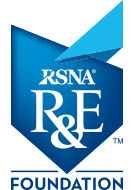Program Seeks to Facilitate Lung Cancer Screening Appointments in a City-Wide Effort
RSNA encourages participation in National Lung Cancer Screening Day on Nov. 11


Lung cancer remains the leading cause of cancer deaths in the U.S., accounting for 25% of all cancer deaths. Lung cancer screening (LCS) using low-dose CT (LDCT) for high-risk individuals is a critical public health tool for reducing lung cancer mortality. However, it continues to be underutilized, particularly among low-income and racial and ethnic minority populations and those with a previously negative baseline screening study.
Community-based participatory research (CBPR) utilizes a partnership approach, bringing together researchers and community stakeholders as equal partners throughout the research process to contribute expertise and share in decision making. CBPR has demonstrated the ability to reduce cancer health disparities and reduce mistrust between health care systems and surrounding communities through reciprocal learning.
In his 2022 R&E Foundation Emerging Issues Grant, Farouk Dako, MD, MPH, assistant professor of radiology at the Hospital of the University of Pennsylvania in Philadelphia, sought to develop a community support program and demonstrate its impact on adherence to lung cancer screening in an urban environment (Philadelphia).
“A common limitation of community-based interventions is difficulty in demonstrating its impact on a population level. We overcome this limitation by utilizing geospatial analysis of neighborhood-level data, which allows for planning and evaluating of interventions,” Dr. Dako said. “Our existing lung cancer screening data sharing agreement involving the three largest health care systems in Philadelphia provides a platform to scale our program into a multi-institutional, city-wide effort. We hypothesize that a community support program to facilitate lung cancer screening appointments will improve adherence to yearly follow-up screening compared to routine care alone.”
Focus on Patients With Upcoming Annual Screening Appointments
Dr. Dako and his research team look to demonstrate the impact of a community support program (CSP) on adherence to LCS follow-up in an urban environment.
They will use population-level data that includes geospatial analysis of Philadelphia neighborhood-level data of patients who have received a LDCT for LCS.
“Using census tract data, we can intervene in a target neighborhood and utilize a different neighborhood with a similar socioeconomic profile as a control to be able to determine the effect of our program,” Dr. Dako said. “High-quality studies are needed to measure impact, replicate approaches and create standard practices for community-engaged interventions. There is a paucity of such interventions utilizing high-quality data. Using neighborhood-level data allows for targeted community interventions and the ability to evaluate impact on a population level.”
Currently, the researchers are targeting individuals in a health care system residing in Philadelphia with a negative baseline screening CT and an upcoming follow-up screening CT.
Participants will be divided, based on residential location, into receiving clinic plus community support versus routine clinic only (control). Primary analysis will measure the 12-month follow-up LDCT adherence rate difference between clinic plus CSP and clinic only group, and its association with CSP enrollment.
“Once individual patients have been identified, they will receive access to free transportation for follow-up LDCT and we will connect them with a community health care navigator who will provide education and additional support to help them overcome any challenges or additional barriers to health care utilization,” Dr. Dako said.
Planning and evaluation of the program will be performed using RE-AIM framework. RE-AIM stands for Reach, Effectiveness, Adoption, Implementation and Maintenance. Dr. Dako and colleagues will evaluate the results with an emphasis on measuring reach, effectiveness, and sustainability of their approach.
“We will review our results after six months and analyze feedback from patients regarding their health-related social needs, after which we hope to add some additional interventions into the process to help encourage more patients to seek LDCT for lung cancer screening,” Dr. Dako said.
National Lung Cancer Screening Day
In partnership with the Radiology Health Equity Coalition, RSNA supports the National Lung Cancer Roundtable in promoting National Lung Cancer Screening Day on Saturday, Nov. 11.
Together we are asking screening centers nationwide to open their doors that day and allow individuals to access screening—an action that could save lives and increase awareness of screening within communities.
The President’s Cancer Panel has charged associations, screening centers and community health advocates with promoting lung cancer screening. Join us by encouraging your screening center to open Nov. 11.
For More Information
Learn more about National Lung Cancer Screening Day.
Learn more about the Radiology Health Equity Coalition.
Read previous RSNA News articles on lung cancer screening: